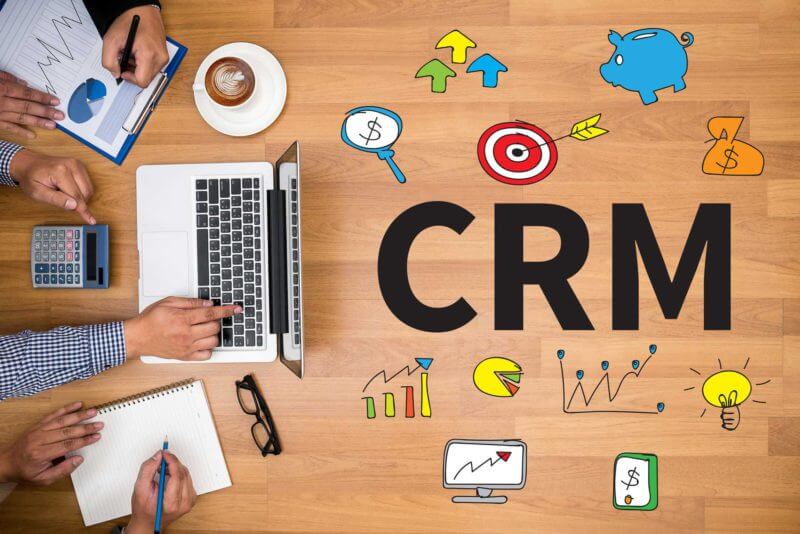What is Customer Relationship Management?
Sep 29
In a nutshell, customer relationship management (CRM) are the practices and policies that a company utilizes to deal with their customers and potential customers. A good customer relationship management therefore is the outcome of effective strategies and technology to analyze, manage, and interact with customers to improve delivery of services and goods.
Customer relationship management includes the following: customer data, track leads, clients and other contacts, employees, training and knowledge of employees, resources or assets, partners or support vendors, marketing, sales management, contracts, customer support, sales reports, and access of business information.

Customer Relationship Management System
A CRM system should be able to improve the company-customer relationship to improve sales, retain customers, and attract more customers. This means that all possible means of contacting the company should be used to enhance overall customer experience. For companies that care about sales management, it’s important to set up a CRM system that will allow the employees to build data that can be used for sales reports, management, marketing, and addressing customer concerns.
An example of a CRM system such as www.crystaldash.com from Singapore includes a company’s customer-facing staff, telephone, website, email, social media, and other communication means that will collect data about the customers’ personal details, buying preferences, common complaints, purchase history, and other concerns. Most large businesses in Singapore can benefit from an organized CRM system, but small-scale and medium-scale businesses will also benefit from this.
The customer relationship management system that a company uses may be one of the following:
-
1. Customer-centered, which focuses on the interactive and individual relationships with customers.
2. Opportunity management, which handles the forecast of demand and growth, sales management, and to create projections of future sales.
3. Marketing campaigns that focus on the analysis of customer sales or the information accessed by the customers in the company’s website and social media.
4. Data warehouse which stores all the related data from customer profiles to sales reports then combines all the CRM systems to come up with indicators of key performances.
5. Contact manager system, which is a CRM system that is most useful for small-scale to medium-scale companies that need an integrated contact system for phone calls, emails, faxes, and documents.
6. Software as a service system, which provide companies with the needed tools through the Internet instead of investing in hardware and software. A provider will set up the CRM system for the company. An example of this is the cloud CRM, which will save the company the time and money it takes to set up a CRM system.
7. eCommerce CRM, which focuses on the automation of marketing by integrating customer email, cart rescue, and others.
8. Tracking CRM for membership-based firms and non-profit organizations that will help them track and communicate with individuals.

Customer Relationship Management Types
Ever since the concept of customer relationship was laid out in the 1970s, companies have come a long way to developing different means of dealing with customers and potential customers. Although the components of CRM are primarily about support, sales, marketing and management, the means of collection and analysis of customer and potential customer data may vary.
The company might also focus on specific types of data depending on what type of goods and services they are selling. Even factors such as education and income are taken into account besides the usual demographic data of age and gender when selling products and services. These data are also used to track down possible customers that fit the category of a potential customer profile that was created using the information of existing customers.
Customer relationship management can be divided into different types based on the company’s goal.
-
1. Operational CRM focuses on the sales, marketing, and service.
2. Strategic CRM focuses on creating a customer-centric business.
3. Analytical CRM focuses on the analysis of all the collected customer data.
4. Collaborative CRM considers the company’s relationship with its vendors, suppliers, distributors, and other stakeholders who also need the collected customer data.
Customer Relationship Management Software
An effective CRM system used by the most successful companies in Singapore is the CRM software setup that will allow the company to integrate all the relevant information that can be accessed easily if needed. Not only will the employees be able to compile and manage customer information, but the CRM software also includes automated workflow processes, set up alerts and tasks, track performances and productivity, and provide channels for customer interaction through phone calls, email, and social media.
A CRM software specifically features a contact automation, marketing automation, sales automation, and location-based technology to make customer relationship management much easier than manual methods.
Marketing will benefit from CRM software such as a cloud CRM for example, because it can assist in any part of the marketing life cycle. It will reduce instances of repetitive tasks to save time in the creation of marketing materials for potential customers. More customers mean more sales, which is another aspect that a CRM system can make easier. This will reduce the time it takes to track and contact both the customers and the salespersons in the company.
For any customer concern, the CRM software will reduce the tasks of a customer agent by solving problems and providing stored information. This system will cut down call times and simplify problem-solving processes for the customers and the customer contact center. Meanwhile, location-based technology will allow the company to create marketing strategies based on the location of potential customers. This is especially useful for large corporations in Singapore that want to attract customers abroad. This can also serve as a means of contacting office anywhere in the world much more easily.


